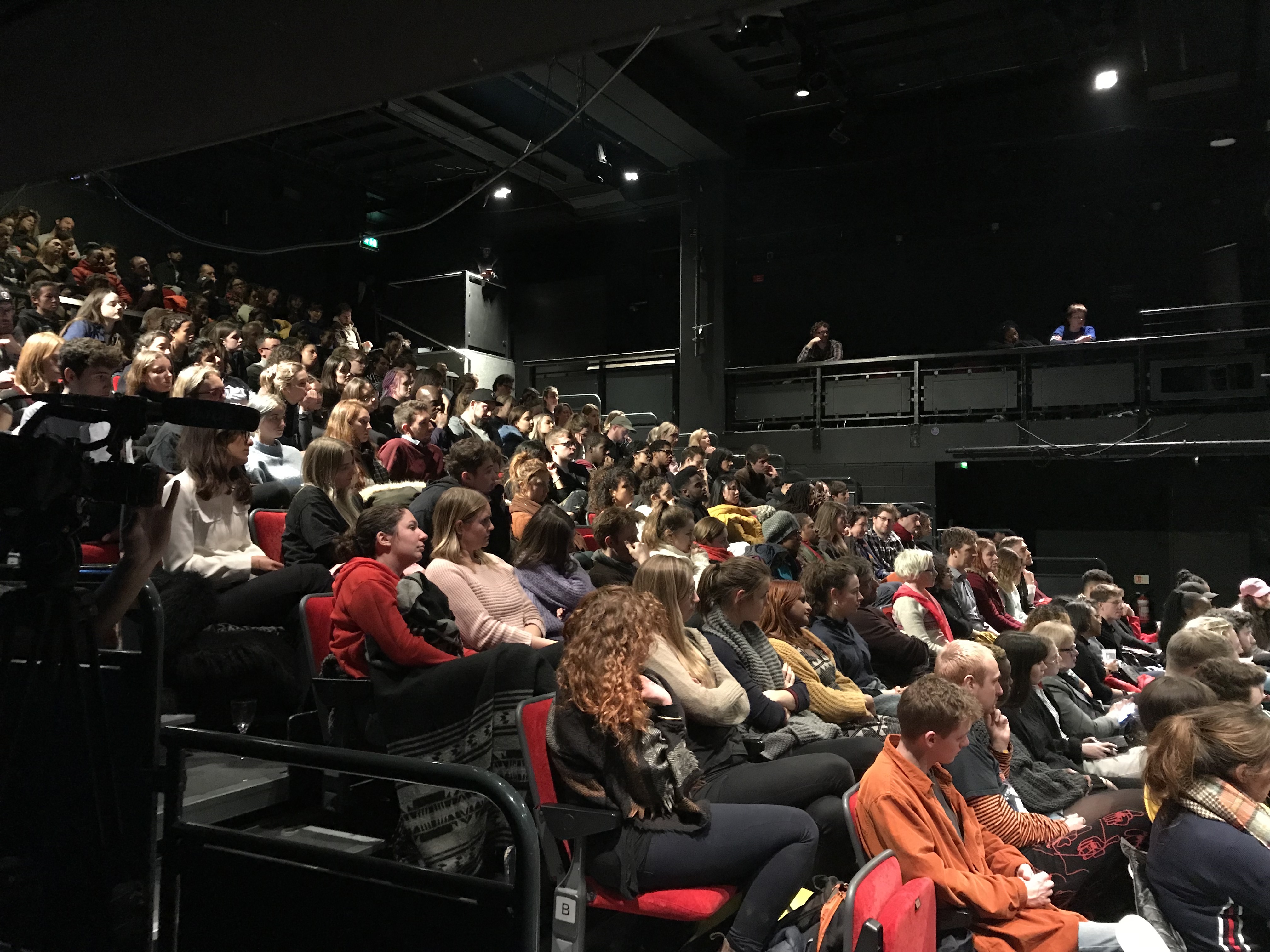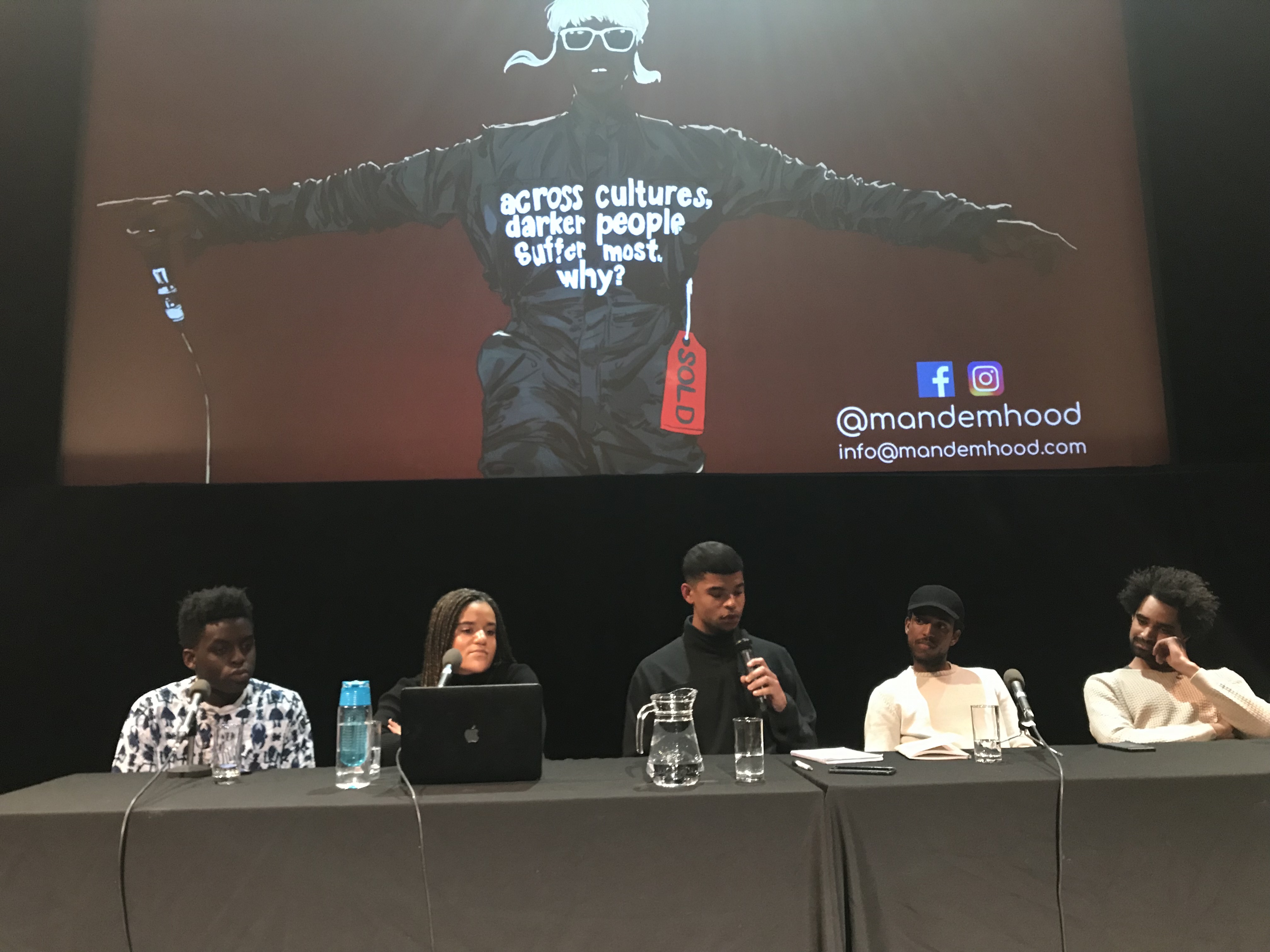By Zoë Crowther, Students’ Union Correspondent
The public event was hosted by Mandem, a multimedia platform founded in 2017 by current Bristol student Elias Williams.
Mandem is an online space dedicated to giving a voice to young men of colour, enabling them to express themselves through film, music and written pieces.
‘Has Identity Politics Gone Too Far?’ was the topic approached at their latest event, which took place at Arnolfini on Monday 4 February 2019.
Elias Williams, who is currently studying MA History at Bristol, acted as chair. He introduced a number of questions to the panellists to fuel the discussion, which was followed by an open Q&A session with the audience.
The event was sold out, with many students in attendance
Image: Epigram / Zoë Crowther
Williams told Epigram: 'I thought it was important to bring up identity politics at an event like this because it's received a large backlash recently. I felt it necessary to discuss what it is about identity politics that encourages right-wing commentators to attack it so frequently.'
Focusing on racial and masculine identities, Mandem's content ranges from personal stories and interviews to reviews of recent film and music releases.
Previous events have included a panel in 2018 which explored the question ‘Do Mandem Need Feminism?’
Vanessa Wilson, Student Living Officer at Bristol SU, was one of the four guest panel members. The other panellists included Daniel Edmund, the founder of Milk For Tea, a company which encourages men to explore their identity and potential through workshops and community projects, and Olumide Osinoiki, a UWE student who is exploring black British identity in his latest photography project.
Panellists: Olumide Osinoiki, Vanessa Wilson, Elias Williams, Daniel Edmund, Marcus Fagon
Image: Epigram / Zoë Crowther
Also on the panel was Marcus Fagon, a therapist and mentor for young people and a graduate of two master’s degrees relating to political thought and community work.
Debates between the panellists included the varying definitions of identity politics, the implications of political correctness for freedom of speech, and the exploitation of identity politics by modern advertising, following the online backlash to the Gillette advert condemning toxic masculinity.
"In some ways, the backlash against the new Gillette video perhaps proves its relevance. It shows how aggressively toxic masculinity can react when it is criticised."
Posted by MANDEM on Sunday, 20 January 2019
Regarding political correctness, Vanessa Wilson said: ‘I don’t think that it exists. I think that it has been coined by people on the right to justify being able to say whatever they like.
'Traditional voices in society are losing power, and marginalised voices are gaining platforms and their voices are being listened to. This is perceived as a threat and PC culture is essentially a manifestation of political frustration.’
At the end of the event, Williams explained that a section of Mandem’s website has now opened up to allow contributors from any background, permitting anonymous submissions on relevant topics.
Daniel Edmund gave his view on opening up the conversation surrounding race and masculinity: ‘We have to be able to sit down with racists, with people who are homophobic, people who think very differently to us.
'We have so many of these spaces where we all agree and we don’t have enough spaces where we have that diversity of thought. We have to use that energy and say “help me understand what you’re thinking.”’
Speaking to Epigram, Wilson outlined how students can approach these issues: ‘The main thing that students can do is engage in some of the campaigns that are happening on campus. And also creating your own campaigns: come into the Students’ Union and that’s something we will help you with.’
‘I think what Elias is doing is fantastic: we’re talking about controversial issues in a constructive way and I think more of that needs to happen.’
Featured Image: Epigram / Zoë Crowther
What are your thoughts? Let us know:
Facebook // Epigram // Twitter









